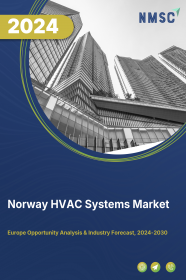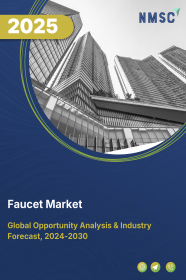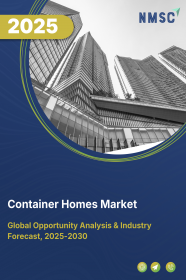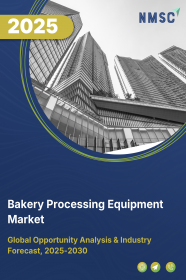
Norway HVAC Systems Market by Equipment (Cooling Equipment, Heating Equipment, and Ventilation), by Implementation Type (New Construction and Retrofit), and by End User (Residential, Commercial, and Industrial) - Opportunity Analysis and Industry Forecast, 2024– 2030
Industry: Construction & Manufacturing | Publish Date: 13-Nov-2024 | No of Pages: 119 | No. of Tables: 87 | No. of Figures: 52 | Format: PDF | Report Code : CM1940
Market Definition
The Norway HVAC System Market size was valued at USD 1.05 billion in 2023, and is predicted to reach USD 1.81 billion by 2030, at a CAGR of 7.5% from 2024 to 2030.
HVAC (Heating, Ventilation, and Air Conditioning) refers to the technology and systems used in buildings to regulate indoor environmental conditions such as temperature, humidity, and air quality to ensure comfort and safety for occupants. Heating systems provide warmth during colder months, ventilation systems circulate and replenish indoor air, and air conditioning systems cool and dehumidify indoor air during warmer months.
HVAC systems offer several advantages, including improved occupant comfort and health, increased energy efficiency leading to cost savings, better indoor air quality through filtration and ventilation, precise temperature control for enhanced productivity in commercial settings, and protection of building infrastructure from extreme weather conditions. Additionally, these systems can be designed to meet specific requirements, contributing to sustainability goals by reducing carbon emissions and promoting eco-friendly practices in building operations.
Environmental Concerns Drive Growth in the HVAC Systems Industry
Environmental considerations are integral to the growth trajectory of the HVAC systems sector. Heightened awareness regarding climate change, air quality, and ozone layer depletion has intensified the call for sustainable practices and regulatory measures. Governments worldwide are imposing directives to curb the environmental impact of HVAC systems, prompting manufacturers to invest in eco-friendly solutions and comply with stringent standards.
The HVAC systems industry is experiencing significant growth driven by environmental imperatives. With increasing concerns about climate change, air quality, and ozone layer depletion, there is a growing emphasis on sustainable practices and regulatory compliance. Governments worldwide are implementing policies to reduce the environmental impact of HVAC systems, leading to the development and adoption of eco-friendly technologies.
Growing Demand for Improved Indoor and Outdoor Air Quality Drive the HVAC System Market
The burgeoning need for enhanced indoor and outdoor air quality is propelling growth within the HVAC system market. Heightened awareness concerning air quality's significance is prompting both residential and commercial property proprietors to invest in HVAC systems capable of efficiently filtering and purifying indoor air while curtailing outdoor emissions.
Consequently, there exists a surging demand for advanced HVAC systems integrated with contemporary filtration technologies such as HEPA filters and UV-C light sterilization, proficient in eliminating pollutants, allergens, and pathogens from indoor environments. This path is compelling HVAC manufacturers to innovate and introduce novel solutions prioritizing air quality enhancement, thereby catalyzing the expansion of the HVAC system market.
Price Volatility of Raw Materials Restrains the Growth of the HVAC system Market
The augmentation of raw material costs, spurred by inflation and supply chain disruptions, detrimentally affects the manufacturing expenses associated with HVAC systems. The upsurge in expenditures for pivotal raw materials such as steel, copper, and aluminum significantly amplify production costs for HVAC manufacturers.
Consequently, smaller and mid-sized HVAC entities experience margin pressures, adversely impacting their profitability and hindering investments in research and development endeavors. This acts as a barrier to the market's growth trajectory.
IoT Integration Creates Ample Opportunities for the HVAC System Market
The integration of Internet of Things (IoT) technology introduces a significant market opportunity for the HVAC industry. This integration facilitates remote control capabilities, enhanced energy efficiency, and predictive maintenance solutions. By incorporating IoT devices and sensors into HVAC systems, users can remotely monitor and adjust settings, optimize energy consumption, and proactively address maintenance issues before they escalate.
This augmentation enhances user experience and comfort, reduces energy expenditures, and extends the operational lifespan of HVAC equipment. With mounting demand for buildings that surpass the efficiency of existing infrastructure, the implementation of IoT integration is anticipated to generate ample opportunities within the HVAC system market.
Competitive Landscape
The market players operating in the Norway HVAC System market include Midea Group Co Ltd, Daikin Industries Ltd., Gree Electric Appliances Inc., Johnson Controls International Plc., Carrier Global Corporation, Samsung Electronics Co., Ltd., Trane Technologies Plc., LG Electronics Inc., Panasonic Holdings Corporation, Lennox International Inc. and others.
Norway HVAC System Market Key Segments
By Equipment
-
Cooling Equipment
-
Unitary Air Conditioners
-
Variable Refrigerant Flow Systems (VRF)
-
Chillers
-
Room Air Conditioners
-
Coolers
-
Cooling Towers
-
-
Heating Equipment
-
Heat Pumps
-
Furnaces
-
Unitary Heaters
-
Boilers
-
-
Ventilation
-
Air-handling Units (AHUs)
-
Air Filtration Systems
-
Ventilation Fans
-
HRVs & ERVs
-
Air Purification Systems
-
Others
-
By Implementation Type
-
New Construction
-
Retrofit
By End User
-
Residential
-
Commercial
-
Industrial
REPORT SCOPE AND SEGMENTATION:
|
Parameters |
Details |
|
Market Size in 2023 |
USD 1.05 Billion |
|
Revenue Forecast in 2030 |
USD 1.81 Billion |
|
Growth Rate |
CAGR of 7.5% from 2024 to 2030 |
|
Analysis Period |
2023–2030 |
|
Base Year Considered |
2023 |
|
Forecast Period |
2024–2030 |
|
Market Size Estimation |
Billion (USD) |
|
Growth Factors |
|
|
Companies Profiled |
10 |
|
Market Share |
Available for 10 companies |
|
Customization Scope |
Free customization (equivalent up to 80 working hours of analysts) after purchase. Addition or alteration to country, regional, and segment scope. |
|
Pricing and Purchase Options |
Avail customized purchase options to meet your exact research needs. |
KEY PLAYERS
-
Midea Group Co Ltd.
-
Daikin Industries Ltd.
-
Gree Electric Appliances Inc.
-
Johnson Controls International Plc.
-
Carrier Global Corporation
-
Samsung Electronics Co., Ltd.
-
Trane Technologies Plc.
-
LG Electronics Inc.
-
Panasonic Holdings Corporation
-
Lennox International Inc.

















 Speak to Our Analyst
Speak to Our Analyst





















